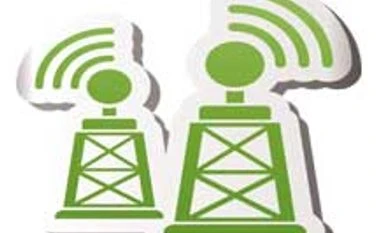However, demand for the 900 MHz airwaves tapered in the Delhi and Mumbai circles towards the end of the day, as telecom companies (telcos) stayed away from aggressive bidding at higher prices in the last few rounds.
The average price rose 15.5 per cent at the end of the second day from Monday’s auction in the band.
While demand for spectrum suddenly dropped in the Delhi circle to only 7 MHz (aggregate demand), the price rose 23.7 per cent during the day as compared with the first day, when demand and available spectrum was on a par in the circle. The price rise, if compared with the original reserve price, would be 47.5 per cent.
The price of spectrum jumped the highest in Mumbai when compared with the government’s reserve price, by 68.5 per cent at the end of the second day (a rise of 16.6 per cent from Monday).
While Mumbai attracted the most aggressive bidding, with demand of an extra 5 MHz spectrum on the first day, this came down to 18 MHz on the second day (16 MHz is for grabs).
Demand in Kolkata dropped by only 1 MHz to 12 MHz (14 MHz up for sale). The price of spectrum rose about five per cent from the first day’s provisional price in the Kolkata circle, while the total jump was 46.5 per cent as against the original base price.
If the entire spectrum put on auction gets sold in the 900 MHz band, with the 1,800 MHz band in line with demand from the telcos, the government will make close to Rs 44,500 crore at Tuesday’s provisional winning price, about 17 per cent more than the value of the entire spectrum at the reserve price. As companies pay in instalments mode, the government has made Rs 13,084.9 crore, higher than its year’s Budget target of Rs 11,343 crore.
Those involved in the bidding said the “100 per cent activity clause” would be invoked from Wednesday. This means telcos will have to bid all their points on the basis of the earnest money they paid — some had been holding back so far, to use the points later. The actual demand from telcos will be reflected only after this happens.
The provisional winners in the Mumbai and Kolkata circles in the 11th round of bidding have decided not to do so at the higher prices fixed by the auctioneer for the next rounds. According to experts, if they do not come back to bid in the coming rounds, the price will be determined on the basis of the round when the total spectrum demand matched the total availability. Under the process, the price is increased in every round and the provisional winners are asked to bid for a higher price.
Some telecom company executives say the auction might end earlier than expected — some feel in a day or two — if the current trend continues.
On the first day of the auction, the government had secured a little more than Rs 42,000 crore (according to the final bidding price), with the average bid price for the three 900 MHz circles 34 per cent higher than the reserve price. On Tuesday, after the end of five additional rounds, the government’s revenue was expected to reach a level close to its proceeds from sale of 20 MHz of 3G spectrum (Rs 50,968 crore).
WEAK SIGNAL
1,800 MHz (Only circles where prices have increased)
- Demand for excess spectrum in the 1,800 MHz band was only in two circles — Gujarat and Uttar Pradesh (West)
- Prices have increased (compared with the original reserve price) in Gujarat by 18.04 per cent, Uttar Pradesh (west) by 14.2 per cent, Bihar by 7.9 per cent, West Bengal by 4.24 per cent and Assam by 1.4 per cent
- The total estimated earning — Rs 44,500 crore to Rs 45,000 crore at the end of Day 2
)